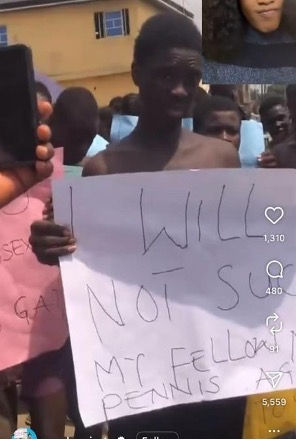THE INCESSANT INSECURITY AND ITS IMPACT ON WOMEN AND GIRLS IN THE IDPS
- Yua Miriam
- Jun 30, 2021
- 3 min read
Raymond, Benedicta’s brother who live in Ibadan visited his sister that is married from Mbakwande’s village. Benedicta ran to the IDP camp due to the incessant killings in her village. On reaching there, Raymond was shocked to see that she is pregnant in her condition. She narrated to him how the village was attacked and she had to run to the IDP which is the only place available as the whole village was left in shambles. She expressed how it was never her wish for things to be that way but there was nothing she could do. She explained to Raymond her challenges in the camp and how it has been unbearable for her and other women and girls. All these she said with tears in her eyes. Nigeria is seriously facing security challenges which is the cause of displacement in the society today. Displacement occurs due to armed banditry, farmers-herders conflict, inter-communal wars and boundary disputes, amongst others. Nigeria’s displaced population continue to increase as these conflicts and violence challenges continue unabated. More than half of the millions of internally displaced persons (IDPs) in Nigeria are women and girls. They experience displacement differently from men and boys, and face specific challenges that must be better understood to provide them with the support they need. Displaced women and girls tend to be at greater risk of deprivation, insecurity, abuse, neglect and a general weakening of their wellbeing. Their sex and age also often impede them from making their voices heard or participating in decisions on matters that affect them. Internal displacement increases the risk women and girls face of gender-based violence because it separates them from their communities and sometimes the families that might otherwise protect them from any violence. Displaced women and girls living in camps are particularly vulnerable and easy prey to traffickers and other opportunists, and camps in generally tends to be particularly unfriendly environments for women and girls. The worsening in housing conditions also leaves them more vulnerable to disturbance and attack. The loss of livelihood opportunities associated with displacement is also a source of insecurity for women and girls, they may be forced to engage in transactional sex to survive. With no hope of survival, families and parents may see child marriage as a coping mechanism to deal with increased in economic hardship. Women and girls have specific health needs that can be more difficult to meet during displacement. The limited availability of services and facilities, stigma related to sexual and reproductive health, lack of child-friendly and gender-sensitive information, and financial inability to afford contraception or access age-sensitive reproductive health counselling, stigma surrounding sexual and reproductive health and other factors can lead to unintended pregnancy and other related health issues. Pregnant women and girls who have been displaced receive less antenatal care and are more exposed to violence, malnutrition, poor hygiene conditions and communicable diseases than non- displaced women and girls. This is particularly severe for adolescent girls who are under even greater risk of suffering from maternal mortality and illness. As a result, their children may be born with complications or in poor health. Most of these women and the adolescent girls in the IDP camps have no information about family planning, some have wrong information, some have misperceptions about its safety, believing that family planning is dangerous and it can damage their reproductive system while most of them lack access to adequate family planning services and Sexual and Reproductive Health Education, counseling and or information that will direct them on how and when to space their children, to have safe sex to prevent unintended pregnancy and also observing of sanitary hygiene. The consequences of displacement can last for a lifetime, particularly when it interrupts education and limits future opportunities, and this tends to be the case for girls. If current trends persist, only one in three girls may have access to education. Recommendation 1. Government and CSOs should provide urgent and comprehensive SRH care services to the IDP camps. 2. Create awareness on Sexual and reproductive Health and Rights. 3. Sensitized and encourage them on the importance of reporting cases of sexual abuse or any form of violence. 4. Government should enforce laws and strengthen measures to punish perpetrators of sexual abuse. Conclusion Internally displaced women and girls require tailored support and protection to ensure their safety and ability to exercise their rights. Ramond took her sister from the IDP camp to stay with him in Ibadan so she could have safe delivery. Written By Yua Miriam








Comments